All Stories
-
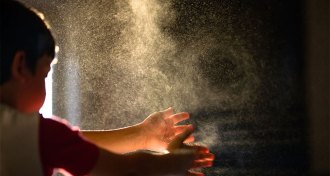
-
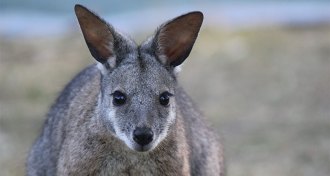 Animals
AnimalsLights at night trick wild wallabies into breeding late
Artificial lighting is driving wild tammar wallabies to breed out of sync with peak season for food
By Susan Milius -
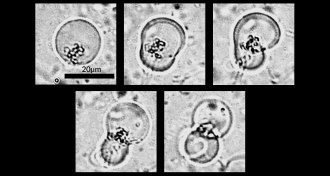 Life
Life‘Protocells’ show ability to reproduce
Lab-made “protocells” mimic the division process of early cells, and may help researchers understand cellular evolution.
-
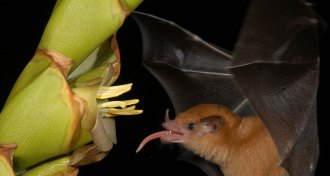 Animals
AnimalsSome bats chug nectar with conveyor belt tongues
Grooved bat tongues work like escalators or conveyor belts, transporting nectar from tip to mouth.
-
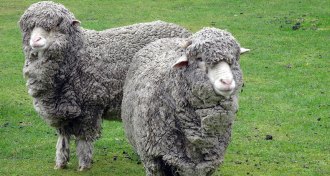 Animals
AnimalsMath describes sheep herd fluctuations
Scientists have developed equations to describe the motion of a herd of sheep.
-
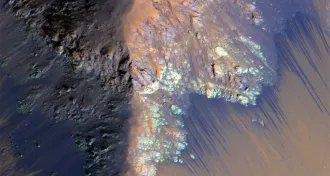 Planetary Science
Planetary ScienceSalt streaks sign of present-day water flows on Mars
Salt deposits on Mars hint at contemporary seasonal water flows on the Red Planet.
-
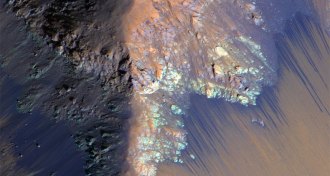 Planetary Science
Planetary ScienceSalt streaks point to present-day water flows on Mars
Salt deposits on Mars hint at contemporary seasonal water flows on the Red Planet.
-
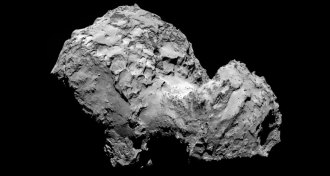 Planetary Science
Planetary Science67P reveals recipe for a comet
Rosetta’s comet 67P probably started out as two smaller comets.
-
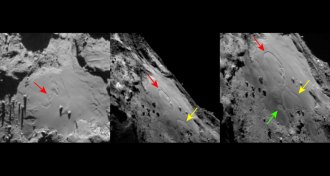 Planetary Science
Planetary ScienceMysterious circles appear, grow on comet
The Rosetta spacecraft caught five circular depressions quickly spreading across a region of comet 67P.
-
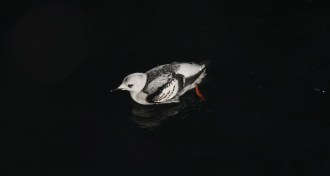 Animals
AnimalsLife in the polar ocean is surprisingly active in the dark winter
The Arctic polar winter may leave marine ecosystems dark for weeks on end, but life doesn’t shut down, a new study finds.
-
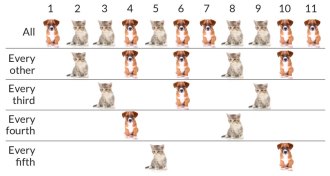 Math
Math83-year-old math problem solved
An 83-year-old math problem concerning sequences of 1s and –1s has been solved.
By Andrew Grant -
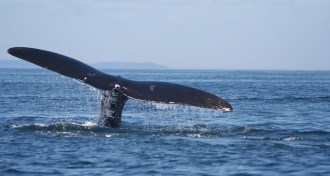 Animals
AnimalsDon’t judge a whale’s gut microbiome by diet alone
Evolutionary history and diet may both determine the microbes that live in a baleen whale's stomach, researchers report.